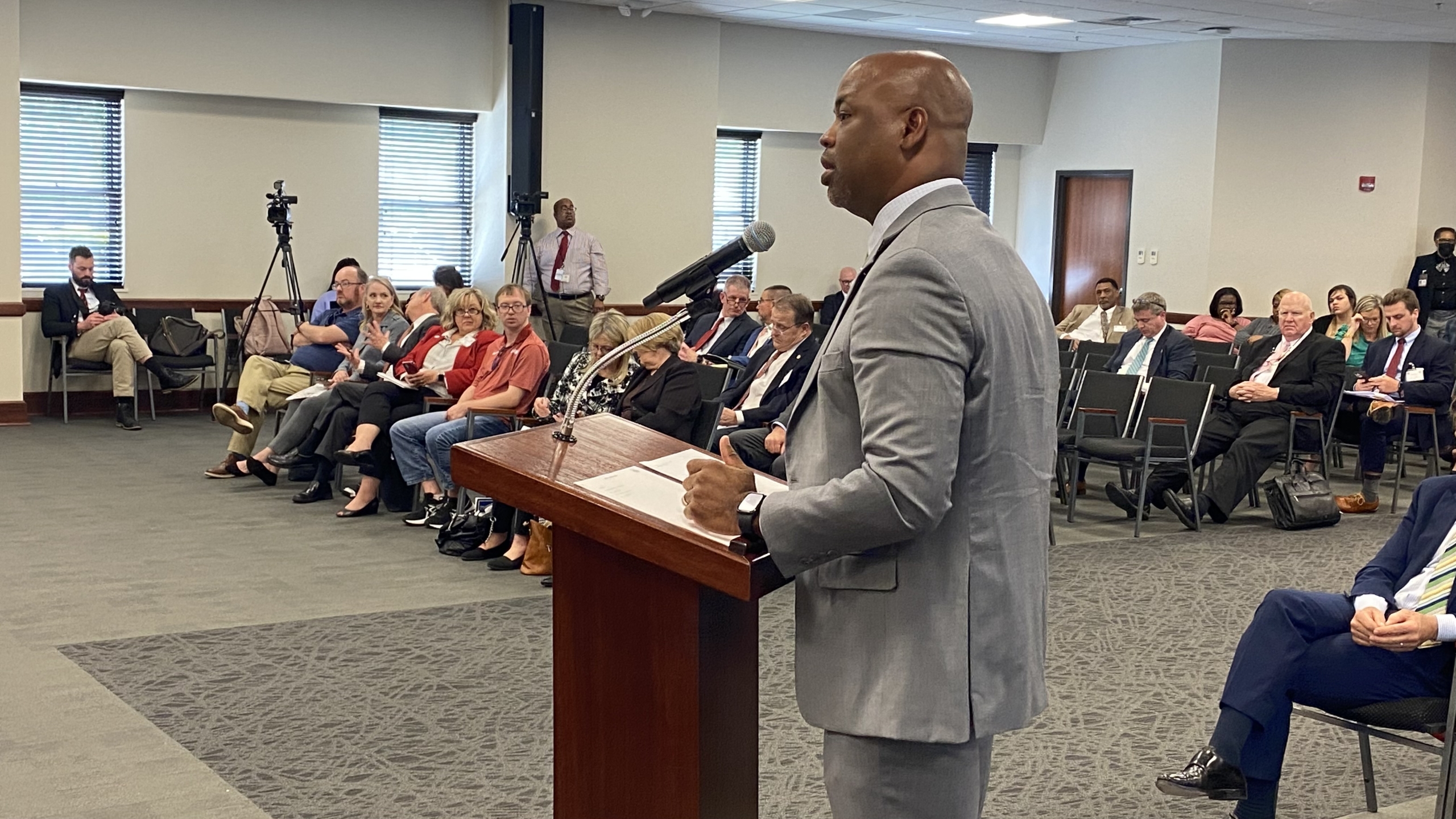On Tuesday, former Alabama Governors Robert Bentley and Don Siegelman published an opinion in The Washington Post expressing doubts and regrets about their terms as governor presiding over executions.
On Wednesday, former Republican state Sen. Dick Brewbaker explained his support of the bill to the House Judiciary Committee, stating that the original 2018 law to end judicial override was meant to be applied retroactively, but politics got in the way.
At the same public hearing, a woman who formerly served on an Alabama jury that she said was 9-3 in favor of not guilty recounted how the three “guilty” votes wouldn’t budge, and how they decided to find the defendant guilty in hopes to prevent the man from another jury sentencing him to death.
And the family of the victim of Joe Nathan James Jr., whose execution last year drew criticism about the state’s transparency and process, explained their frustration of seeking to prevent his execution.
And a local reverend shared his thoughts on the balance of justice, and how this bill balances justice and mercy.
And a woman who has fought against the death penalty for years pleaded for the committee to focus on forgiveness.
And a Tuscaloosa judge said that in the case of the highest penalty the state can hand down, a jury’s decision should not be overridden by a judge, and a jury should need to be unanimous.
And committee chair Jim Hill, R-Moody, thanked the opponents for speaking and adjourned the committee without offering up a vote, citing the committee’s procedure to always allow a week between a hearing and a vote.
It’s true that it has been a longstanding practice of Hill’s Judiciary Committee; however, just last week the committee voted through a bill by Rep. Ben Robbins, R-Sylacauga, that would require pornography distributors to implement age verification to access content despite having a public hearing on the same day, ostensibly for the same reason that a request was made by Rep. Penny McClammy, D-Montgomery, to take a vote on this bill— with no time left in the session to account for delays.
Regardless, Rep. Chris England, D-Tuscaloosa said, he doesn’t expect his bill would have survived a vote by the committee, and this all but ends the bill’s journey in the House this year.
There are currently 31 men awaiting execution by the state because a judge overrode a jury who decided against the death penalty.
Judge David Carpenter of Tuscaloosa said that those numbers correlate with election years, representing a 30 to 40 percent increase in the number of judicial overrides.
“This would remove that political element from the process,” Carpenter said.
Brewbaker said that most of the Senate members approved of applying the bill retroactively at the time, but the bill was up against the end of the session, and one Senator threatened to filibuster if the retroactive provision was not dropped.
“There was only one ‘no’ vote in the Senate, and that senator had me in a barrel over time,” Brewbaker said.
Brewbaker did not name the senator, but records show that Sen. Trip Pittman, R-Montrose, made the amendment.
Brewbaker asked the committee to pass, if nothing else, that provision of the bill.
“When it’s all over and you’re through with he amendatory process, those 31 individuals do not need to be treated differently than all the people from 2018 forward,” Brewbaker said. “Those 31 people don’t need to be the only people who are subjected to having their sentence changed from a life without (parole) to a capital sentence.”
Mae Puckett often had to pause due to being choked up from tears to share her story of bargaining in the jury room to prevent the death sentence, only to be overridden by a judge.
“When I found out the judge had overturned our recommendation, I was infuriated,” Puckett said. “Because—why? What was the point of us ever being there if we weren’t going to matter. Why did we have to sit and listen to these horrible things, see these pictures that we had to go through?”
Joe Nathan James Jr. was not sentenced to death by judicial override, so he would not have been provided relief under this bill.
However, the victim’s family expressed their overall disappointment in the system that would allow a man to be executed against the wishes of the family of the victims.
When Gov. Kay Ivey ordered a moratorium on executions last year, she said it was to make sure the executions are carried out properly for the benefit not of the people facing death, but for the family of the victims.
England said he will be bringing the bill back again in the next session.



















































